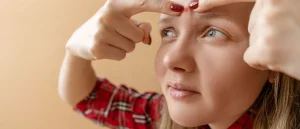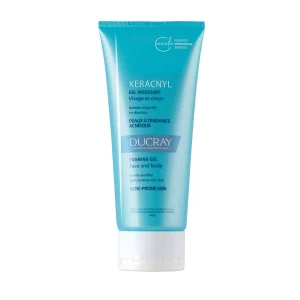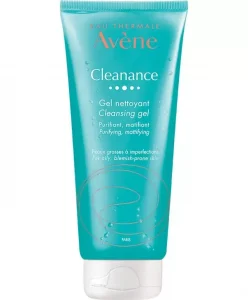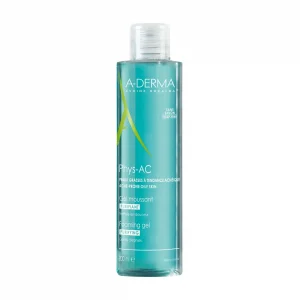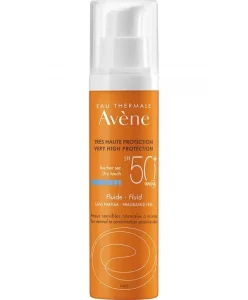
Here’s how the story of hormonal acne unfolds: Just when you thought puberty had taken the unsightly acne of adolescence with it, you’re faced with a new wave of pimples in your 20s. Right around the time of your period, acne appears along your jawline and cheeks, adding insult to injury. Looking on the bright side, you do have solutions to fight hormonal acne.
Dermatologists use a few key characteristics to determine if a pimple is hormonal. Check out this article from The Dermo Lab in collaboration with the dermatologist and cosmetologist Dr. Joanna Khalil to learn how to spot hormonal acne breakouts, and how to treat them.
What is hormonal acne?
Hormonal acne is exactly what it sounds like: acne related to the fluctuations in your hormones. “The hormones that cause this type of acne are estrogen and progesterone, which vary significantly during your menstrual cycle. They can also affect testosterone levels, which may also play a role in hormonal acne,” explains Dr. Joanna Khalil.
This type of acne is also known as adult acne and is particularly common in women. It is thought that hormonal fluctuations result in increased sebum production in the pores.
How do you know if you have hormonal acne?
Dr. Joanna Khalil outlines a few key points about hormonal acne:
- It usually appears on the lower part of the face, mainly on the cheeks and around the jawline, which is probably related to increased oil and sebum production in that area.
- Patients most often complain of cysts, more than comedones, and they are usually painful, red, and inflamed and take a long time to heal.
- Patients also complain of flare-ups and breakouts before or around their menses.
Hormonal acne can be caused by influxes of hormones from:
- Menstruation
- Polycystic Ovarian Syndrome: Dr. Joanna Khalil explains that many PCOS patients suffer from hormonal acne. They also have menstrual irregularities and sometimes increased hirsutism or hair growth on the cheeks, chin, and neck.
- Menopause: According to Dr. Joanna Khalil, some women experience hormonal acne as they approach menopause due to a decrease in estrogen and an increase in testosterone.
- Increased androgens: Dr. Joanna Khalil says that patients with elevated androgen levels, as well as patients starting or weaning themselves off oral contraceptive pills, might also experience hormonal acne.
Specifically, these hormones can make acne problems worse by increasing the following:
- general inflammation of the skin
- oil production in the pores
- clogging of skin cells in hair follicles
- production of acne-causing bacteria called Propionibacterium acnes.
Does alcohol cause hormonal acne?
According to Dr. Joanna Khalil, alcohol consumption can influence hormone levels, which in turn can lead to acne. She adds that alcohol is known to lower testosterone levels in men. However, in women, it has the opposite effect and can actually increase testosterone and estradiol levels. Thus, this increase in hormone levels will stimulate the sebaceous glands to produce more sebum, which can clog pores and cause breakouts.
How to control acne due to hormonal imbalance?
Preventing hormonal acne might seem like a big challenge – hormonal acne is caused by your hormones, after all. But, before you let the tricky nature of this type of acne get to you, know that it’s a perfectly normal phenomenon and that there are many ways to treat it.
The most common options are as follows:
1- Retinoids
Dr. Joanna Khalil indicates that the first step in treating any type of acne is to use a topical retinoid, as it can help unclog pores and prevent future acne breakouts.
Many retinoid-based creams, gels, and lotions are available over the counter. But you may want to talk to your doctor about a prescription formula. A prescription product is often the most effective way to keep your skin clear.
If you add a topical retinoid to your regimen, make sure to apply sunscreen daily. Retinoids can increase your risk of sunburn.
2- Oral contraceptives
Dr. Joanna Khalil notes that the oral contraceptives used for the treatment of acne contain ethinyl estradiol in addition to one of the following:
- progestin
- norgestimate
- norethindrone acetate
- drospirenone
Together, these ingredients attack the hormones that can contribute to acne. This can be especially helpful during hormonal peaks, such as ovulation.
Birth control pills may not be an option for you if you have a history of blood clots, high blood pressure, or breast cancer.
3- Anti-androgen drugs
Excessive androgens can contribute to acne problems by interfering with the hair follicles that regulate skin cells and by increasing sebum production. So, according to Dr. Joanna Khalil, anti-androgen medications work by decreasing the male hormone androgen.
They include spironolactone which prevents your body from producing more androgens and allows your hormone levels to stabilize.
4- Isotretinoin (Accutane)
Everyone asks this common question, “Can Accutane cure hormonal acne?” Dr. Joanna Khalil assures us that Accutane is the strongest and most effective option for treating hormonal acne. She adds that it is a vitamin A derivative used in the treatment of severe acne in patients who have not improved with topical treatments or oral antibiotics. It reduces sebum production by the sebaceous glands, increases cell turnover, and clears acne.
However, Dr. Joanna Khalil warns of its side effects, which include chapped lips, dry skin, sun sensitivity, thinning hair, birth defects, mood swings, muscle pain, etc. Therefore, it should only be taken under the supervision of your dermatologist.
If hormonal acne is mild, it can clear up on its own or with topical creams. But if it’s moderate to severe, systemic medications are needed, such as antibiotics, isotretinoin, or hormone therapy.
Dr. Joanna Khalil points out that there are some medical procedures that can be performed in-office and help reduce the severity of acne such as chemical peels, microdermabrasion, and certain types of laser. She points out that, as a general rule, a combination of treatment modalities yields the best result.
What else can I do to get rid of hormonal acne?
To get rid of hormonal acne and keep it at bay, it’s important to establish a proper skin care routine.
You should:
1- Wash your face in the morning and evening.
The hormonal acne treatment pyramid starts with good over-the-counter cleansers.
If you suffer from acne, choosing a good cleanser can help rid your skin of bacteria that get into clogged hair follicles and cause breakouts. Deep cleansing also removes dead skin cells from the surface of the skin, making it easier to absorb acne medication.
Check out the top-rated facial cleansers which contain ingredients that can help keep acne at bay.
Ducray Keracnyl Foaming Gel
Eau Thermale Avène Cleanance Cleansing Gel
A-Derma Phys-AC Foaming Gel
2- Wear sunscreen every day.
As mentioned above, sunscreen is important because many acne medications make your skin sensitive to sunburn.
A good sunscreen can have a mattifying effect and protect the skin without making breakouts worse.
When it comes to choosing the perfect sunscreen for acne-prone skin, it can be hard to find the best of the best, yet we recommend this formula that offers broad-spectrum protection.
Eau Thermale Avène Very High Protection Fluid SPF 50+
3- Use only non-comedogenic products to reduce the risk of clogged pores.
A non-comedogenic product is one that has been specifically formulated not to clog or block pores.
